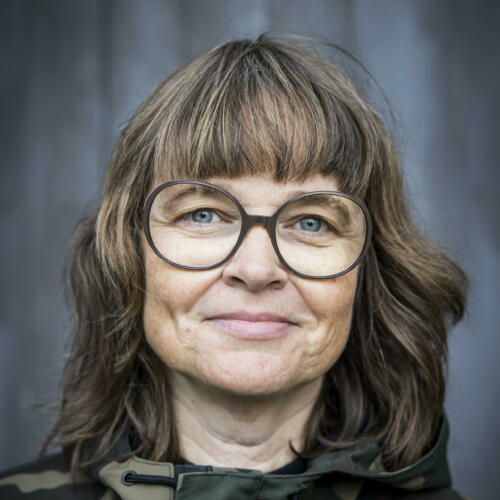The Pro Talks

“Movies should make you feel, not just understand, but truly feel.” Mariella Harpelunde Jensen, a screenwriter and director from Denmark, as well as the head of the program at the BUSTER Film Festival and a member of ECFA, spoke with us about what’s happening in the Nordic countries, which have a strong tradition of creating films for children and young people.
To start, I’d like to ask you: What is that special “something” a film needs to have in order to win an award?
First of all, I’d say it’s a film that makes you feel something, not just understand what it’s about, but actually feel it. It’s also important to feel a connection with the characters, and for those characters to be strong—that’s what we’re always looking for.
What themes do you think children’s films should focus on?
Creators should keep in mind who their audience is. When the filmmakers are younger, it’s easier for them to connect with that. When they’re older, I think it’s good for them to first speak to young people and learn about the issues that concern them. We’re always interested in themes related to identity, family, the environment, and climate.
What kinds of stories do you personally enjoy?
The ones that surprise me, when I’m really invested in what happens to the character and when my emotions are stirred. And, of course, beautiful direction.
And animated films?
I love them when they surprise me too. We used to only have Disney and Pixar films, but now we have so many more kinds. I especially love Japanese animation.
Is it true that Denmark produces a lot of films for children and young people? Is the country somewhat of a pioneer in this area?
Yes, we have a long tradition of producing films for children and young people in Denmark. It started in the 1970s, and this is true for all of the Nordic countries. Back then, we would explore social issues through the eyes of children, and it was very experimental. For example, you could watch a film about World War II from a child’s perspective. Today, children’s and youth cinema has become integrated into our culture. In fact, 25% of the state funding for cinema goes toward the production of children’s and youth films.
What makes your festival special, in your opinion?
We work a lot with schools, organizing screenings. Teachers have the curriculum, but after the film screening, the children are invited to create something themselves. For instance, we might ask teenagers to write a word related to the film and then have them rap and create a song together in class. Or, when we screen a film for preschoolers, we’ll invite them to play afterward. For example, in one of our films, there’s a little white puppy. We have puppets that look like it, as well as other items related to the film, and the kids play with them. Very young children can’t always describe what they feel, but they can play. That’s what we do. So, I’d say that what we do at the festival is open up a dialogue and create opportunities for play in relation to cinema.
That’s amazing!
Thank you so much.
You’ve worked on films for cinema and also series for TV. How do they differ?
I’d say that in TV, you have to “stretch” the plot more compared to cinema. For example, I made a series with two kids who enter a magical world. Each time, I’d give them a puzzle to solve, and they’d pass the baton to two new kids who would star in the next episode. So, I worked with different kids each time. But I also made a series about a girl who had to take over her grandfather’s dance school because he was getting too old to run it. So each episode focused on something happening in the school, with the girl, her grandfather, or one of her friends. This is a different way of working in TV.
Do you think things are better today for women creators?
I’d say yes. There are still many issues, but it’s better. For example, in our field, there isn’t enough money for this type of children’s cinema, and when there is an opportunity for a big production, a blockbuster, it will usually be given to a man.
What do you enjoy most about your work?
I love being present in the moment. Like right now, as we’re talking. I really enjoy working with young people because they help me stay here, present, and live in the now.
Thank you so much for the interview. It’s been wonderful talking to you.
Thank you so much as well.